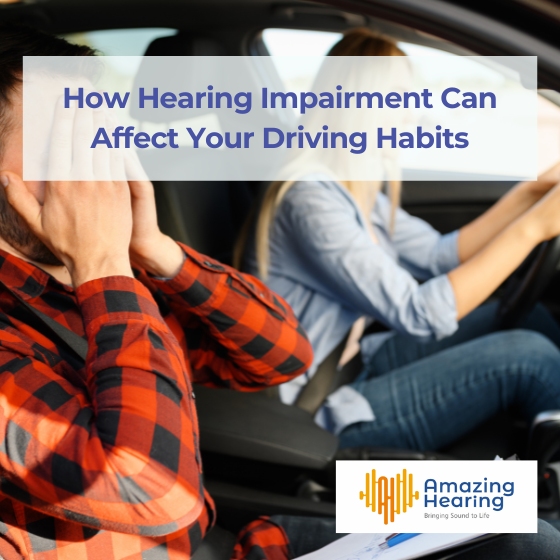Hearing impairment can have a significant impact on driving habits. People with hearing impairments may have difficulty hearing traffic sounds, sirens, and other warning signals. This can lead to accidents or near-misses.
How Your Hearing Actually Helps You With Driving
Your primary sense utilised during driving is your vision. Even if you have complete hearing loss, you may still drive. Hearing is one of the more essential senses you may use while driving.
Alerts You To Danger
One of the most important aspects of hearing is that it can warn you about danger. Sirens, car horns, and other sounds can be picked up by your ears and processed by your brain to alert you to potential danger. This gives you time to react and avoid accidents.
Gives You Spatial Awareness
Another vital function of hearing is that it helps you to be aware of your surroundings. You can hear where other cars are and determine their distance from you. This is especially important when driving at night or in bad weather conditions.
Allows You To Hear Signals Given By Your Car
When reversing or turning, your car will give off audible signals to indicate its direction. These signals are picked up by your ears and processed by your brain so that you can react accordingly.
Helps You Sense Emergency Vehicles
In an emergency situation, it is important to be able to hear approaching sirens. This will allow you to clear the way and make room for the emergency vehicles.
Helps You Understand Communication Given By Other Drivers
Of course, hearing is also essential for communication. You need to be able to hear what other people are saying in order to have a conversation. This is especially true when you are driving. If you can’t hear what the other driver is saying, it can be difficult to communicate effectively.
How Hearing Loss Affects Drivers’ Habits
There are a few different ways that hearing loss can affect drivers’ habits. First, people with hearing loss may have difficulty understanding communication from other drivers. This can lead to misunderstandings and conflict.
Additionally, people with hearing loss may have trouble hearing approaching sirens or emergency vehicles. This can cause them to fail to yield or make room for the emergency vehicles.
Finally, people with hearing loss may have trouble hearing horns or other noises that indicate danger. This can lead to accidents.
Adopting Safe Driving Habits
Put Your Phone Aside
One of the most important things you can do to stay safe on the road is to put your phone away. This means no texting, no emailing, no social media, and no phone calls. If you need to use your phone for any reason, pull over to a safe location first.
Pay Extra Attention To Your Mirrors
You should always be checking your mirrors while you’re driving, but it’s especially important for people with hearing loss. This will help you stay aware of what’s going on around you and make sure you have enough time to react to any potential hazards.
Be Cautious Around Intersections
Intersections can be dangerous for anyone, but they can be especially dangerous for people with hearing loss. This is because it can be harder to hear horns and sirens approaching, so you may not have as much time to react.
Keep Interior Noise Low
You may not be able to hear exterior noise as well if the interior noise is too loud. This can make it harder to hear horns and sirens, which can put you at risk.
Get Ready Your Hearing Aids
If you have hearing loss, make sure your hearing aids are in good working order.
If you still do not have a reliable hearing aids, we would love to help you with that.
Consult our hearing aids Singapore specialist or claim our free hearing test at selected outlets.


